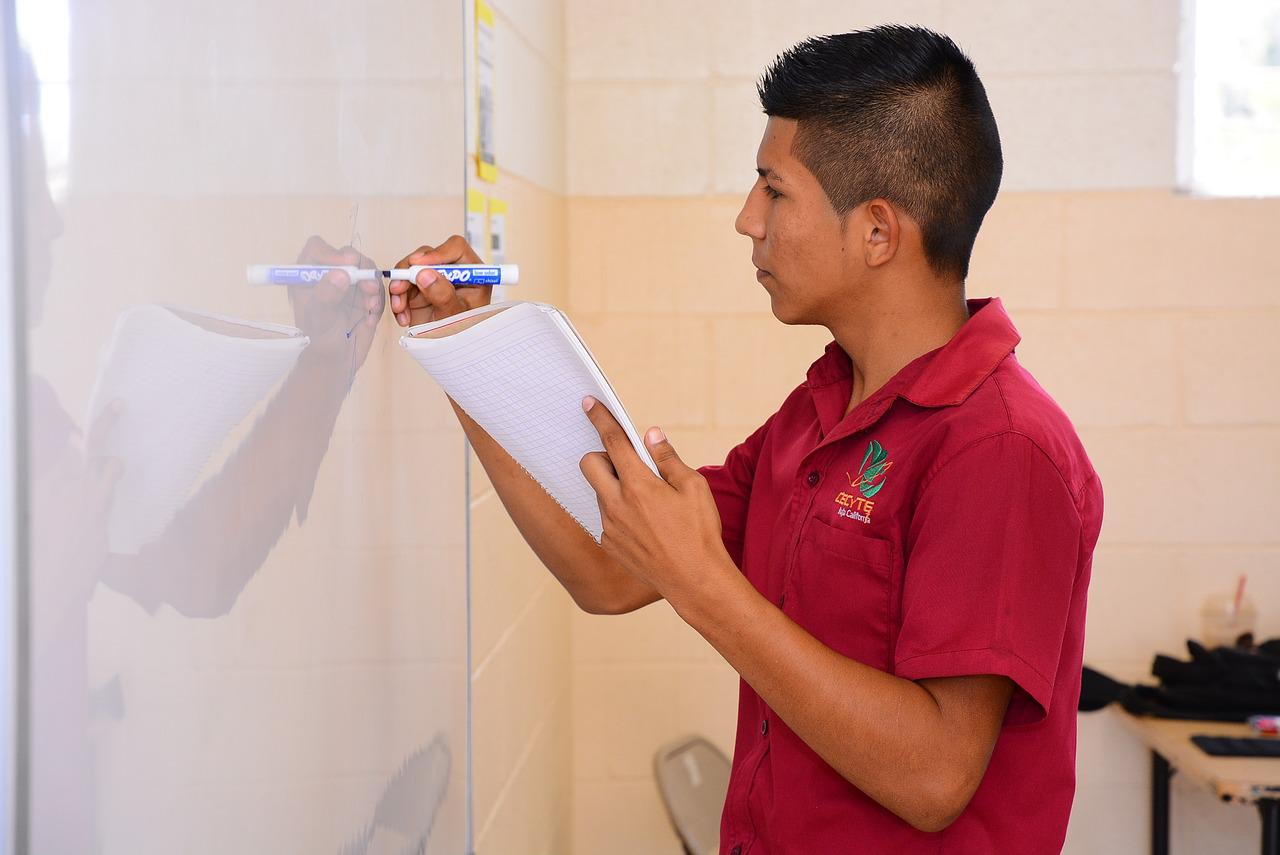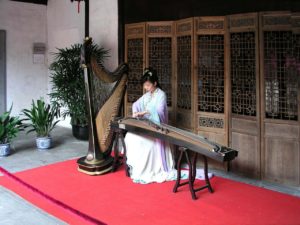Image by Ernesto Eslava from Pixabay
In this post we’ll learn some basic Spanish vocabulary and grammar that you can use to describe people.
¡Muy bonito! Very Pretty!
Let’s start with some basic adjectives that you can use to describe people’s physical characteristics: alto/alta tall; bajo/baja short; joven young; viejo/vieja old; gordo/gorda fat; delgado/delgada thin; guapo/guapa, bonito/bonita beautiful; feo/fea ugly. Let’s see some examples:
- La mujer es alta/delgada.
The woman is tall/ thin. - Las mujeres son altas/delgadas.
The women are tall/thin.
- El hombre es bajo/gordo.
The man is short/ fat. - Los hombres son bajos/gordos.
The men are short/fat. - Mi abuelo es viejo/Mi abuela es vieja.
My grandfather/My grandmother is old. - El niño es joven.
The boy is young. - Tenemos un hijo pequeño.
We have a young (little) son.
GRAMMAR TIP! You’re probably aware that Spanish adjectives agree with the thing they describe. In other words, an adjective will be in the feminine singular form if it describes a feminine singular noun, and so on. If an adjective ends in –o in the masculine singular, it will have the endings –a (feminine singular), –os (masculine plural), and –as (feminine plural).
- un hombre alto/bajo/viejo
a tall/short/old man (masculine singular) - una mujer alta/baja/vieja
a tall/short/old woman (feminine singular) - hombres altos/bajos/viejos
tall/short/old men (masculine plural) - mujeres altas/bajas/viejas
tall/short/old woman (feminine plural)
If an adjective ends in a consonant (like joven, young), it only has that form in the singular, and it ends in –es in the plural.
- un hombre joven
a young man (masculine singular) - una mujer joven
a young woman (feminine singular) - hombres jóvenes
young men (masculine plural) - mujeres jóvenes
young woman (feminine plural)
If you’d like to learn more about Spanish adjective endings, and get some practice to see how well you know your stuff, check out this post.
Curious about why it’s joven without an accent, but jóvenes with one? Check out this post on accents in Spanish.
¿Feliz o triste? Happy or Sad?
Now let’s see a few more adjectives that describe people’s moods or emotions or other non-physical characteristics: feliz, contento/contenta happy; triste sad; inteligente intelligent; tonto/tonta foolish; interesante interesting; popular popular; deportista sporty, athletic; flojo/floja lazy; fuerte strong; débil weak; valiente brave; tímido/tímida shy; hablador/habladora talkative; tranquilo/tranquila quiet; casado/casada married; soltero/soltera single; divorciado/divorciada divorced; viudo/viuda widowed, simpático/ simpática friendly, nice; antipático/ antipática unfriendly, mean.
- La mujer es inteligente.
The woman is intelligent. - Las mujeres son inteligentes.
The women are intelligent. - El hombre es fuerte.
The man is strong. - Él es un hombre fuerte.
He is a strong man. - Ella es una mujer fuerte.
She is a strong woman. - Los hombres son fuertes.
The men are strong. - Mi hermana es simpática/antipática.
My sister is friendly/ unfriendly. - Mi hermano es simpático/antipático.
My brother is friendly/mean. - La niña es tímida.
The girl is shy. - Nuestras hijas son tímidas.
Our daughters are shy. - ¿Estás feliz o triste?
Are you happy or sad? - Nuestro profesor/Nuestra profesora es interesante.
Our teacher is interesting. - Ella es una cantante famosa.
She’s a popular singer. - El policía/La policía es valiente.
The police officer is brave.
GRAMMAR TIP! Here you see a few more types of adjectives. Remember that you can read this post if you want more information and practice. But if you just want the short version:
You saw above that a lot of adjectives in Spanish have four form (o/a/os/as): contento, contenta, contentos, contentas. Adjectives that end in consonants have two: joven, jóvenes. Feliz (happy) is similar, but the –z changes to –c before the plural: feliz, felices.
A lot of Spanish adjectives end in –e, and they just have two forms, –e in the singular, and –es in the plural.
- un hombre inteligente/fuerte/triste/interesante/valiente
a smart/strong/sad/interesting/brave man (masculine singular) - una mujer inteligente/fuerte/triste/interesante/valiente
a smart/strong/sad/interesting/brave woman (feminine singular) - hombres inteligentes/fuertes/tristes/interesantes/valientes
smart/strong/sad/interesting/brave men (masculine plural) - mujeres inteligentes/fuertes/tristes/interesantes/valientes
smart/strong/sad/interesting/brave woman (feminine plural)
Learn Spanish with the Language Garage!
Interested in more Spanish? Check out our other posts on Spanish language, culture, and more. If you’re looking for convenient and affordable live Spanish lessons with a real teacher, visit The Language Garage. Our lessons are affordable and fun, and they’re given online in a virtual classroom, so it doesn’t matter where you live or work – we can come to you. We have flexible options, with a free trial so that you can decide if there’s a fit. Check us out!





